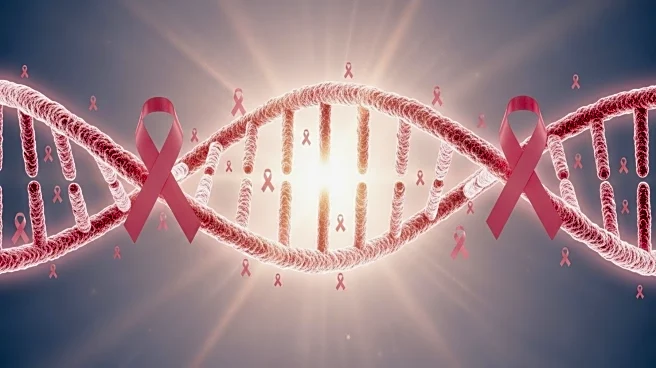What's Happening?
AstraZeneca and Daiichi Sankyo have reported positive results from the DESTINY-Breast05 study, which evaluated their HER2-directed antibody-drug conjugate, Enhertu, in early breast cancer. The study demonstrated a significant improvement in invasive disease-free survival compared to Roche's Kadcyla in patients with HER2-positive breast cancer who have residual disease in the lymph nodes and are at increased risk of recurrence. Enhertu has previously shown success in the DESTINY-Breast11 study, and the companies plan to expand its label to include neoadjuvant/post-neoadjuvant treatment. Enhertu, already a blockbuster therapy for advanced breast cancer, generated $2.29 billion in revenue in the first half of the year, marking a 29% increase from the previous year.
Why It's Important?
The success of Enhertu in early breast cancer treatment could significantly impact the oncology market, offering a new option for patients with HER2-positive breast cancer who are at risk of recurrence. This development may lead to improved long-term outcomes and increased chances of cure for these patients. AstraZeneca and Daiichi Sankyo's efforts to expand Enhertu's use in early-stage cancer could further boost its market presence and revenue, aligning with AstraZeneca's goal of achieving $5 billion in peak annual sales for Enhertu and Datroway by 2030.
What's Next?
Data from the DESTINY-Breast05 and DESTINY-Breast11 studies will be presented at the ESMO cancer congress in Berlin on October 18th. AstraZeneca and Daiichi Sankyo are expected to file for label expansion to include neoadjuvant/post-neoadjuvant treatment. The companies are also advancing their second ADC, Datroway, for metastatic HR-positive, HER2-negative breast cancer, which could further strengthen their position in the oncology market.










